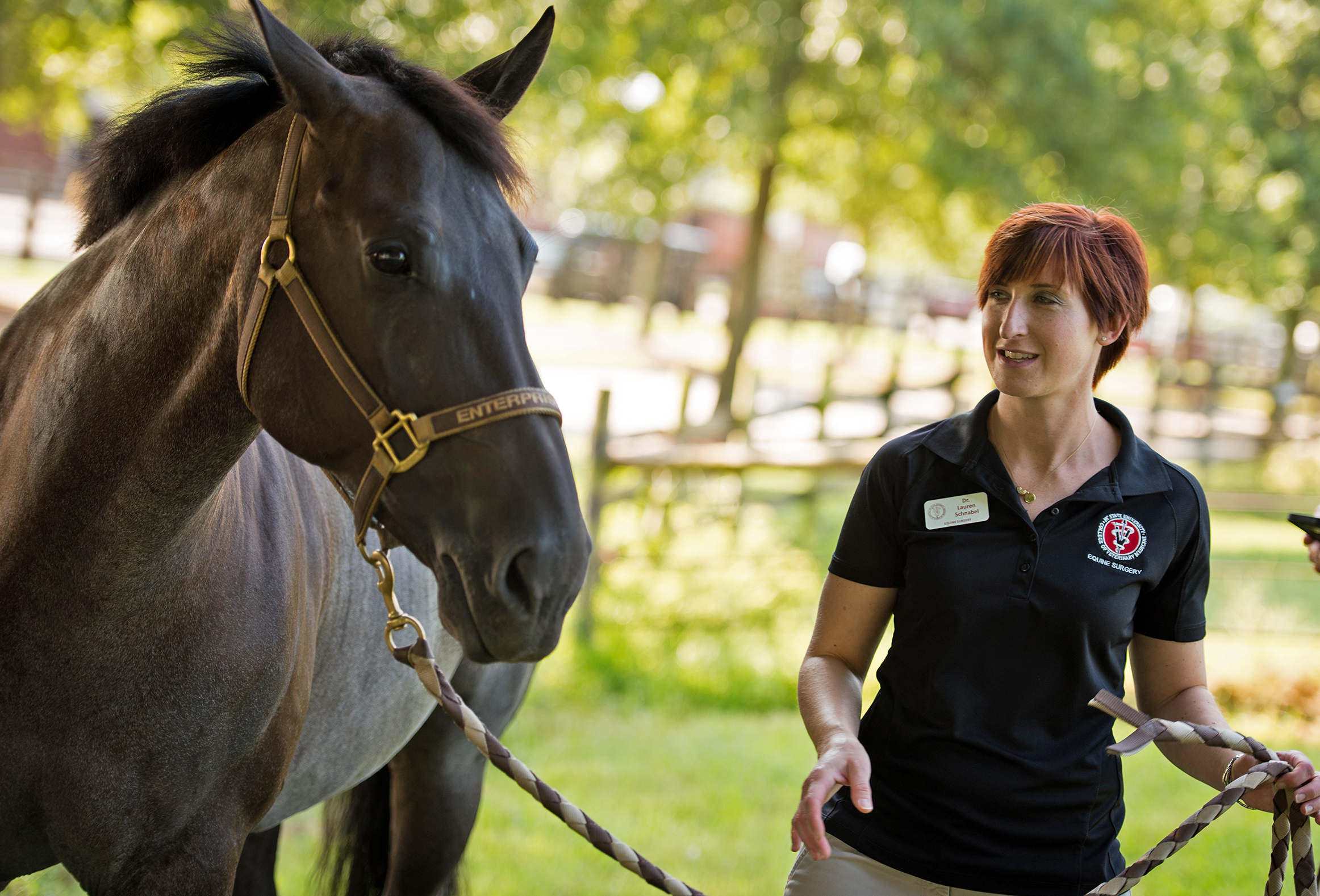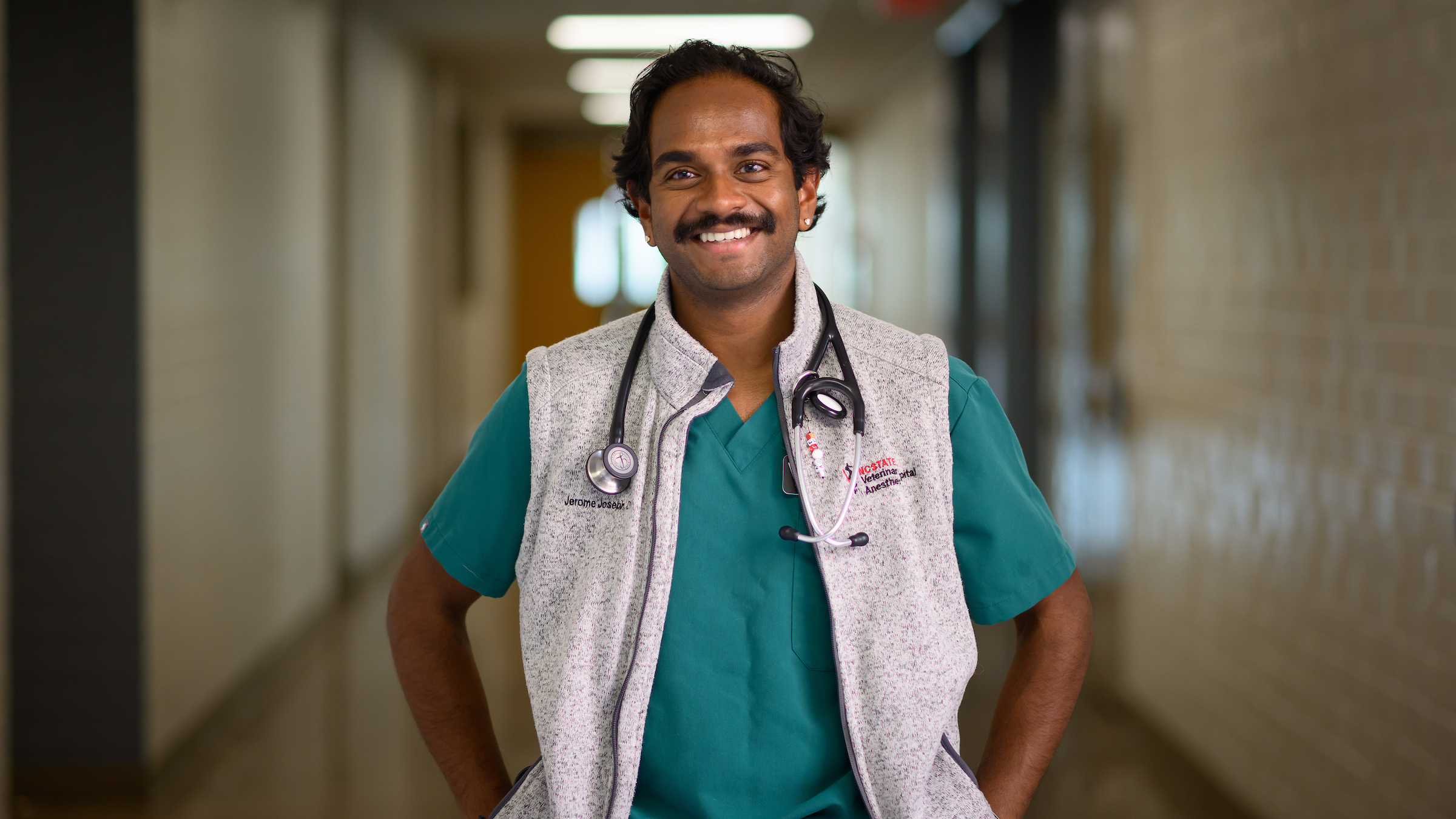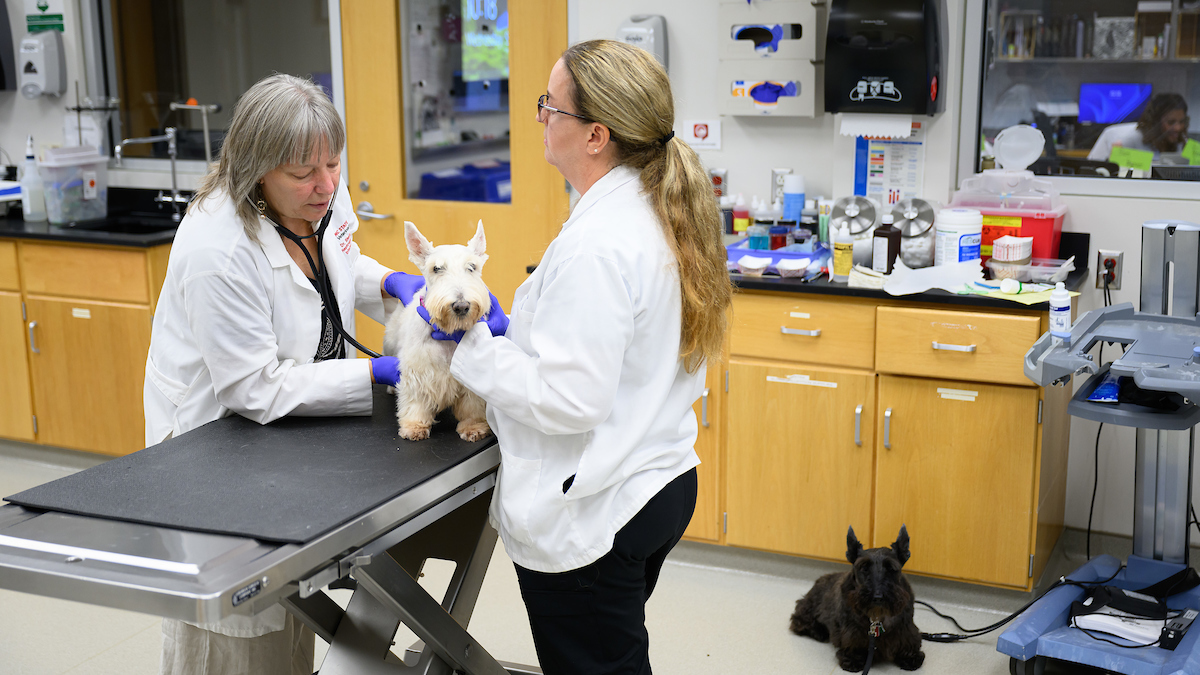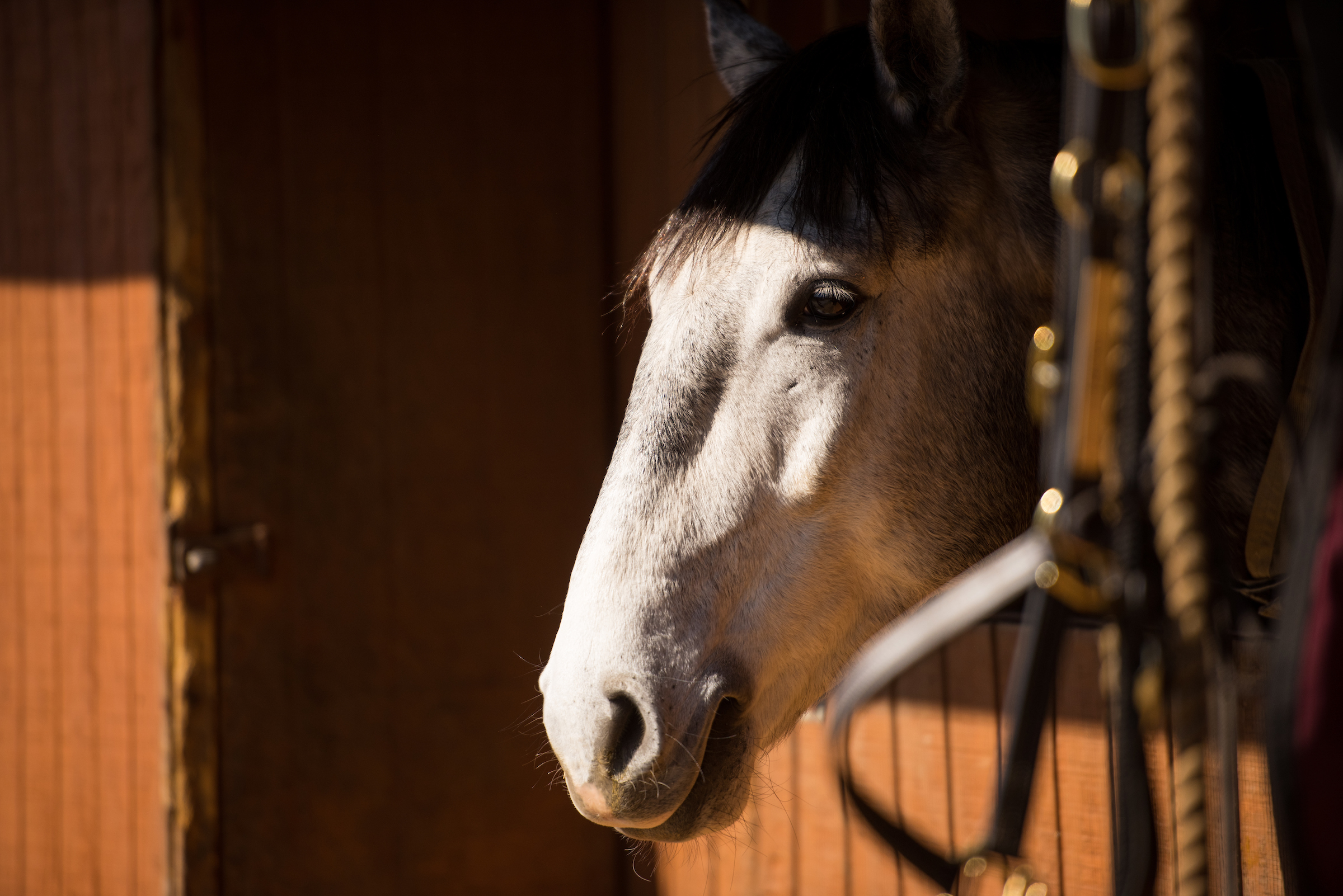A Transformational Gift for NC State’s Equine Program

Horses have always been an important part of my life, from my own treasured riding horses to the racehorses I grew up watching and admiring for the amazing athletes that they are. I was then, and continue now, to be captivated by their individual personalities and talents.
As I advanced through my career, I knew that I wanted to specialize not only in surgery but also in the pursuit of getting these incredible athletes back to their intended performance as soon as possible and with the best chances for a full recovery, both for the horses themselves and for their owners.
As most of us have experienced, and I know that Tiffany and Randy truly appreciate, there is a special bond between animals and humans. In the case of horses, this bond is strengthened by a working partnership and with goals that horse and rider achieve together. It is devastating when our partner is injured.
It is the mission of my research program to develop novel regenerative therapies to enhance the healing of equine orthopedic injuries. The findings of my laboratory have direct clinical relevance not only for our equine patients in the hospital but also for human patients.
For example, our work on the use of platelet-rich plasma and bone marrow-derived stem cells for equine tendon injuries is published in high- level human orthopedic journals. These publications have shaped the gold standard of treatment for our equine patients and have also had a significant impact on how human tendon injuries are treated today.
It is important to acknowledge that the equine model is the accepted NIH model for the study of human orthopedic injuries and diseases. Horses and humans are both elite athletes and as such suffer from similar naturally occurring injuries, undergo similar clinical treatment and rehabilitation protocols, and have similar return to performance demands.
Throughout my career, I have had exceptional mentors and colleagues in both the veterinary and human medical fields. These collaborations along with my expertise as both an equine surgeon and stem cell biologist have allowed me to be unique and competitive and thereby successful in obtaining federal funding for my research program.
I believe that through the efforts of my research program and because of this generous gift from Tiffany and Randy, that we can significantly enhance the recovery of horses following injury and hopefully allow them to return to their full athletic potential. We are very proud of our equine service here at NC State and are particularly looking forward to the future as we build the Tiffany and Randy Ramsey Equine Sports Medicine Program.
We are working hard as a team to improve our advanced imaging for the most accurate diagnosis possible, to improve our treatment strategies through a combination of surgery when indicated and regenerative therapies, and to improve our aftercare with the formulation of patient-specific physical therapy protocols and treatments.
Tiffany has already been instrumental in this last area through her dedication to the advanced training of our exceptional veterinary technicians. Last year, Ms. Catherine McDonald was able to complete her training and become certified as an Equine Rehabilitation Practitioner because of the Tiffany Ramsey Continuing Education Award.
We are all very proud of Catherine’s accomplishments and the knowledge that she has been able to share with us and our NC State students. In fact, just this past week Catherine taught our graduating 4th year veterinary students about equine rehabilitation in the Equine Lameness Selective.
This is the second year she has been able to teach this innovative lecture series to our students, who are so excited to learn about this critical topic!
Very similar to the regenerative medicine lectures and laboratories that I have incorporated into veterinary curriculum as Chancellor Woodson described, these equine rehabilitation lectures are not taught in the vast majority of veterinary schools.
I think it is very important to recognize that NC State is one of only 4 veterinary schools in the US to teach these novel subjects according to my research. Again that is 1 of 4 out of the 30 accredited veterinary schools in the US to offer this cutting edge training to our students.
I feel fortunate every day to be passionate about what I do, to love where I work, and most importantly to love the people and animals that I work with. THANK YOU Tiffany and Randy for believing in us and helping us to accomplish our dreams!!
- Categories:


